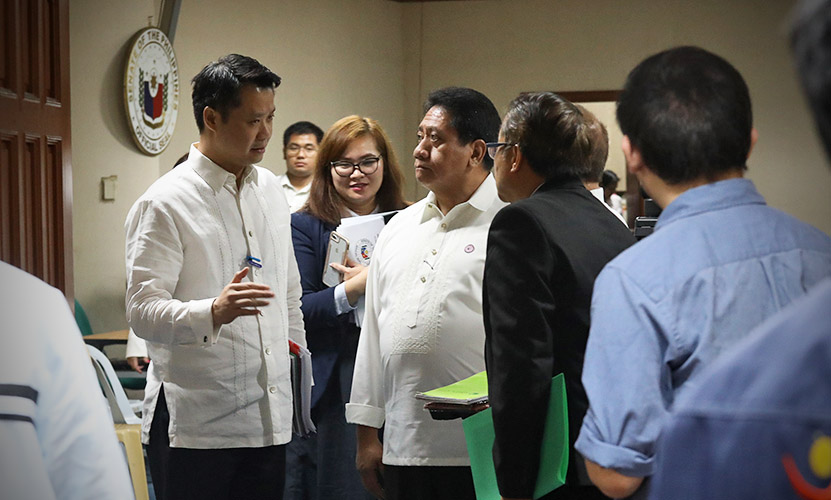
Senator Win Gatchalian wants the Energy Regulatory Commission (ERC) to open its deliberations to the general public to guarantee that consumers get fair and reasonable power rates.
The proposal is among the key features of Senate Bill No. 1490, otherwise known as the ERC Governance Act of 2017, which Gatchalian has filed to ensure transparency and greater accountability in the regulation of the distribution and transmission sector of the country’s power industry.
Gatchalian, who is the chairman of the Senate Committee on Energy, stressed that “the ERC, as the regulator, has a definitive role in safeguarding the interests of the public”, and should therefore, “provide greater confidence that regulatory decisions are made on an objective, impartial and consistent basis, without conflict of interest, bias or improper influence.”
Aside from holding open meetings, SBN 1490 also proposes that live internet streaming of the hearings be made available on the ERC website and a transcript of stenographic notes and minutes of the meeting be made available to the public within one (1) week from the date of the open hearing.
However, in order to protect trade secrets and competitively-sensitive information that are strictly confidential in nature, SBN 1490 allows for the holding of executive sessions ‘upon a majority vote’ of the Commission and only after the reasons for such confidentiality is identified in an open meeting.
Executive sessions will likewise be allowed to “discuss the disciplining or dismissal of complaints or charges brought against a public officer, employee or staff of ERC.”
“These reforms will give life to the constitutional rights of our citizens to have access to public information which directly affects the power costs they see in their monthly electricity bills. It’s like a mini-FOI bill which specifically targets the energy regulation sector,” said Gatchalian.
To better enhance the ERC’s independence and increase public accountability, SBN 1490 also seeks to overhaul the governance structure of the ERC in a bid to equally distribute its regulatory powers and management functions among its officers.
To address this, the bill proposes to strip the chairperson of his control over the management of the ERC, and delegates his role as Chief Executive Officer (CEO) to the Executive Director, who shall be appointed by the Commission, acting collectively.
The Commission, which is composed of the chairperson and four (4) commissioners, shall serve as the ERC’s decision-making authority, and act as arbitrators for petitions, issues or matters related to the regulation of the distribution and transmission sector, such as but not limited to applications for power rate adjustments.
The Executive Director, on the other hand, will serve as the ‘manager’ of the regulating body and lead the management of the daily operations of the ERC, assume full responsibility for the overall supervision and control of all divisions, units and services of the ERC, and initiate investigations and recommend administrative sanctions against erring employees, among others.
“Recent controversies surrounding the ERC have shown the need to overhaul its organizational structure to provide greater checks and balances in the exercise of the body’s significant regulatory powers. I am confident that these reforms will help restore public confidence in the integrity of the institution,” the senator said.
The Joint Congressional Power Commission (JCPC), composed of members of the Senate and the House of Representatives, shall exercise oversight powers over the implementation of the provisions laid out under SBN 1490.


